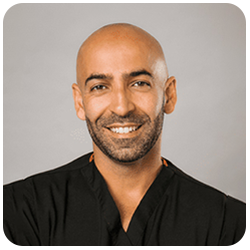Testosterone is widely recognized as the “male” hormone responsible for male sexual characteristics, sex drive, and reproduction. That’s all true, but testosterone does a lot more too. If your levels of this important hormone are too low, it can affect virtually every area of your life.
Unfortunately, testosterone levels do decline as you age, making low testosterone a common problem. In fact, it’s so widespread, it’s earned a nickname — low T. The good news: Testosterone therapy can help.
With offices in Los Angeles and Irvine, California, Hasan Badday, MD, and our team at Pacific Pain and Regenerative Medicine help patients restore their testosterone levels so they can stay healthy as they age. Here’s how to tell if you might have low T and how testosterone therapy can help.
Testosterone as you age
Testosterone levels reach their peak at around 18-19 years of age, declining throughout adulthood, typically at a rate of about 1% per year. For some men, the decline can be more rapid, leading to what’s known as testosterone deficiency.
Testosterone deficiency was once almost exclusively seen among older men, affecting about 40% of men 40 and older. But today, it’s occurring more often among younger males, possibly as a result of an increase in obesity rates among younger people. Research shows about 20% of males between the ages of 18-39 also have testosterone deficiency.
Signs of low testosterone
Most people think of low T in terms of the effect on their sex drive. If your testosterone levels are low, it’s common to experience a low libido or complete loss of interest in sex.
But there are other important symptoms too, including:
- Erectile dysfunction
- Weight gain, especially in the belly area
- Loss of muscle mass
- Loss of bone density
- Hair loss
- Problems concentrating
- Feelings of depression or poor well-being overall
- Mood changes, including irritability
You don’t need to experience all of these symptoms to be diagnosed with low testosterone, and the severity of symptoms can vary.
The basics of testosterone therapy
Research shows that testosterone therapy can help with all the symptoms associated with low T, restoring your energy, your sex drive, and your overall wellness for a better quality of life. Better still, testosterone therapy can be completely customized depending on your symptoms, goals, lifestyle, and other factors.
Testosterone is available in several forms, including patches, gels, injections, and implants. Multiple options allow you to select the form that works best for your lifestyle.
Before initiating therapy, we do a blood test to confirm that your testosterone levels are abnormally low. Your therapy, including your dosage of testosterone, will be tailored to your needs.
Throughout treatment, you have regular visits and blood tests to make sure your treatment stays on target. Depending on each set of results, Dr. Badday may decide to adjust your dosage to ensure you continue to enjoy the optimal benefits of your therapy.
Find out if your testosterone needs a boost
Not everyone who has a low testosterone level needs hormone therapy. In most cases, therapy is recommended only when a patient has symptoms of low T and a blood test confirms low levels of testosterone.
If you’re experiencing the symptoms of low T, the first step in determining if therapy can help is to talk with Dr. Badday. To schedule your visit, book an appointment online or over the phone today.









